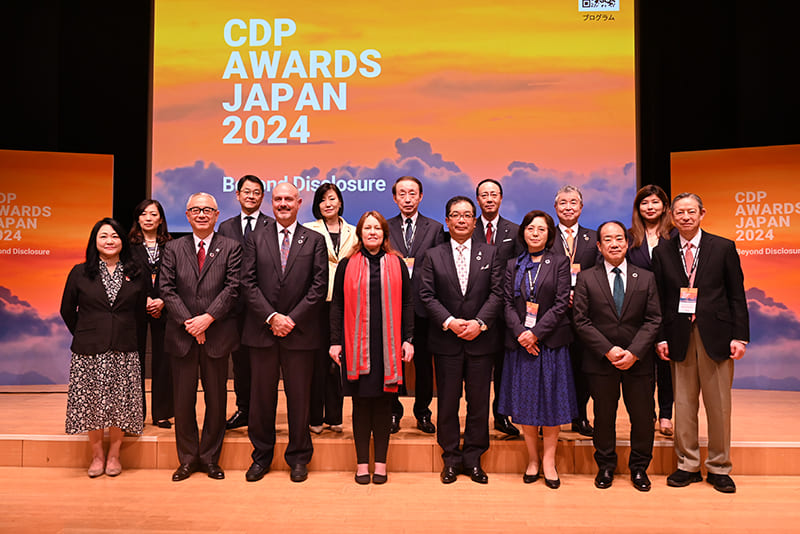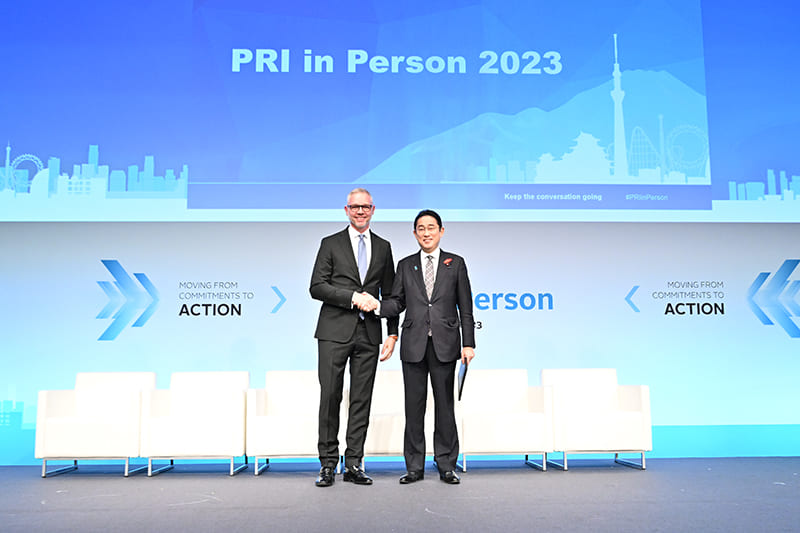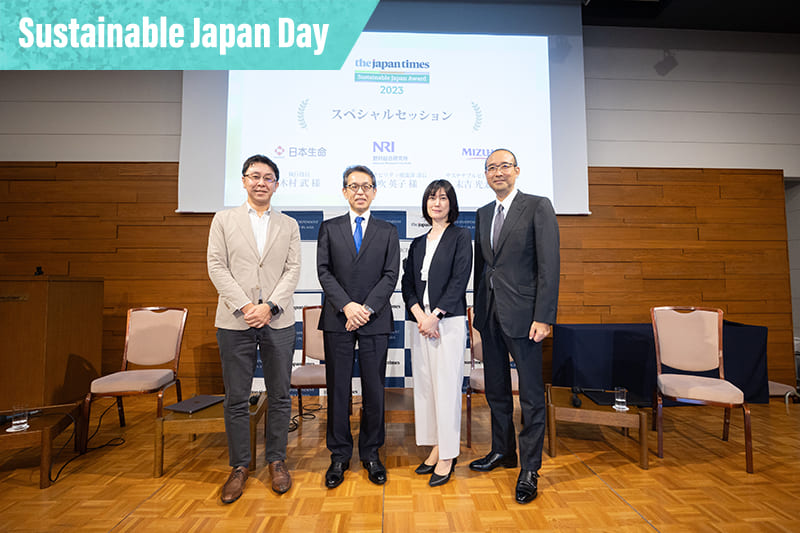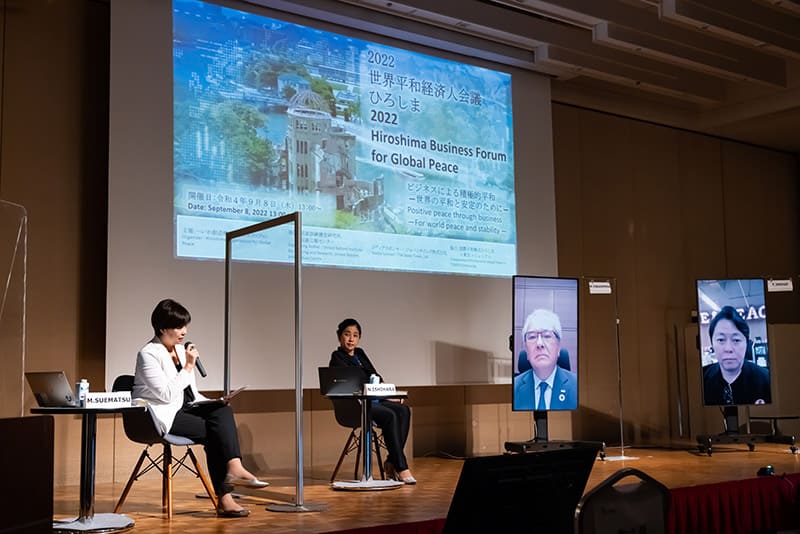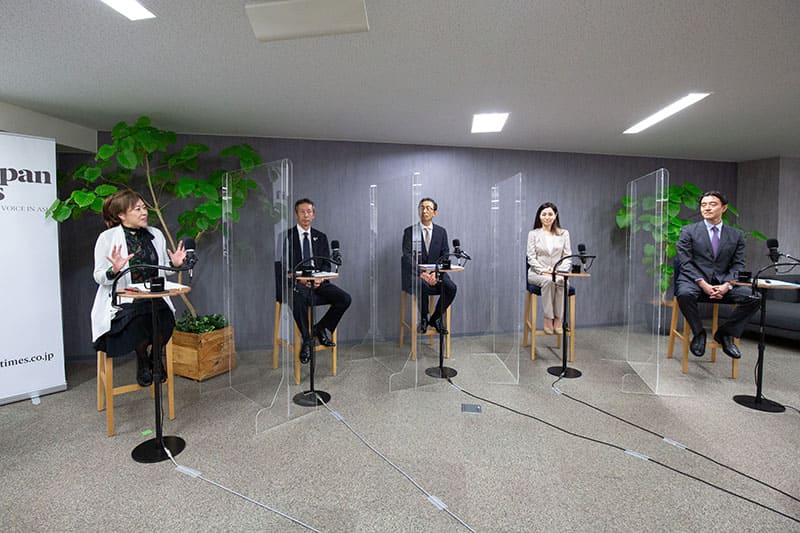November 04, 2025
Environmental policy experts gather on finding better solutions
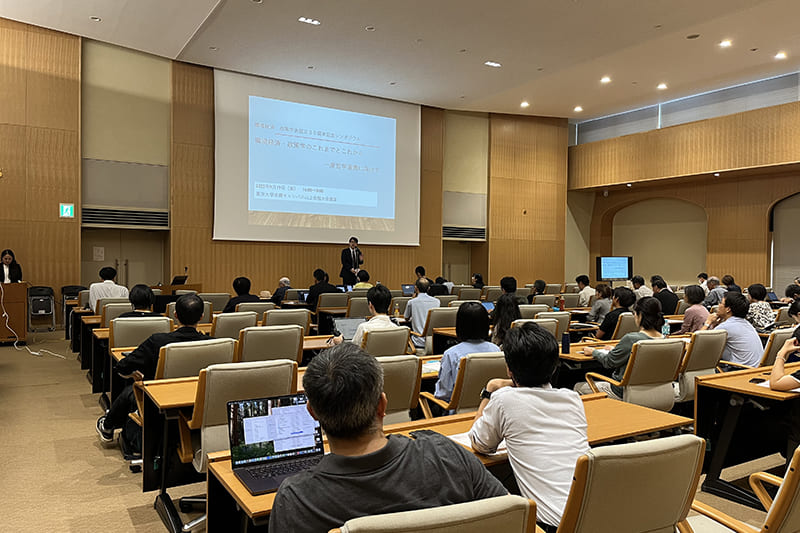
Academic experts on environmental and economic policies gathered in Tokyo recently to discuss the importance of using their expertise more to find solutions to climate change.
Hundreds attended the 30th symposium of the Society for Environmental Economics and Policy Studies on Sept. 19, either in person or online. The event featured discussions between experts and business executives about past actions and future steps needed to support a sustainable society.
“There is more scope for cooperation among industries, governments and academic fields,” Toshihide Arimura, a professor of political science and economics and the director of the research institute for environmental economics and management at Waseda University, said in the opening speech. He said the potential of social science has not been fully taken advantage of in solving environmental issues.
Ayano Ihara, a principal at Boston Consulting Group and an expert on carbon neutrality and climate change, said Japanese companies need academic input to better understand consumers’ preferences in order to effectively market green products.
“Companies must experiment to identify consumers who are willing to pay premiums for green products,” Ihara continued. “To that end, they need to have more contact with experts and advice from them who have expertise on the issue.”
Ihara pointed out that data show Japanese consumers are less conscious of environmental issues and that this affects product marketing. Some U.S. and European companies make stupendous investments to develop green materials and improve consumer perceptions, she said.
A survey conducted by BCG indicates that the primary reason Japanese consumers are reluctant to purchase environmentally friendly products is insufficient information about options. The January 2025 study of 3,300 people showed that 22% of those in their mid to late teens, as well as those in their 50s and 60s, had changed their actions after learning about climate change and global warming — higher percentages than other age groups. Also, 60% of respondents in their 60s are interested in climate issues, the highest percentage among all generations. Ihara said this generation has the strongest concern about what the future holds for their children and grandchildren.
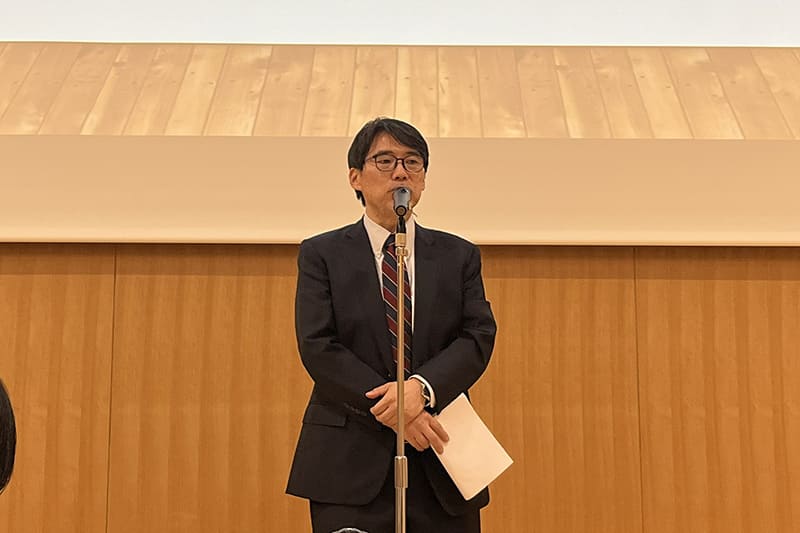
The Society for Environmental Economics and Policy Studies (SEEPS)
She also said that although Japanese companies have developed the capability to manufacture environmentally friendly products, they lack effective strategies to market them and need better ways to clearly communicate their benefits.
At the panel discussion, a female panelist stressed that the Japanese financial industry — including banks, brokerage houses and investment companies — needs more experts on environmental economics. Those who deal with sustainability finance do not always have sufficient expertise, as their positions change too often under the job rotation systems common in Japan, she said.
“It would be wonderful if the financial world had more people who studied environmental economics,” she said, adding that the country needs a kind of system where the business world interacts with experts in economics or environment studies.
She also said she expects academics to convince corporate executives to act on environmental issues by explaining the long-term effects of lower carbon emissions.
Overseas financiers often conduct joint research with universities, elevating their expertise and improving their advisory services to customers. “It would be wonderful if academia and financial firms (in Japan as well) could do something together to create values,” she said.
Japan’s green transformation policy started against a backdrop of global agreement on becoming carbon neutral by 2050. During a policy speech at the Diet in 2020, then-Prime Minister Yoshihide Suga pledged net-zero carbon emissions by 2050. The government later released a policy on investing a total of ¥150 trillion ($1 trillion) in green transformation projects.
She said the government’s drive for green transformation accelerated after Russia invaded Ukraine in 2022, raising concerns over energy security, including imported fossil fuels. According to the Agency for Natural Resources and Energy, Japan has an energy self-sufficiency rate of 15.3%, the lowest among the Group of Seven nations. By comparison, the United States and Canada have rates of over 100%.
The government is set to encourage sustainability finance that will help fossil fuel companies shift their energy sources to zero-emission and renewable sources, in tandem with the carbon pricing mechanism that will start in 2026, creating a new market for trading companies’ carbon emissions. So far, Japan has issued a limited amount of sustainable bonds, worth ¥2.5 trillion.


